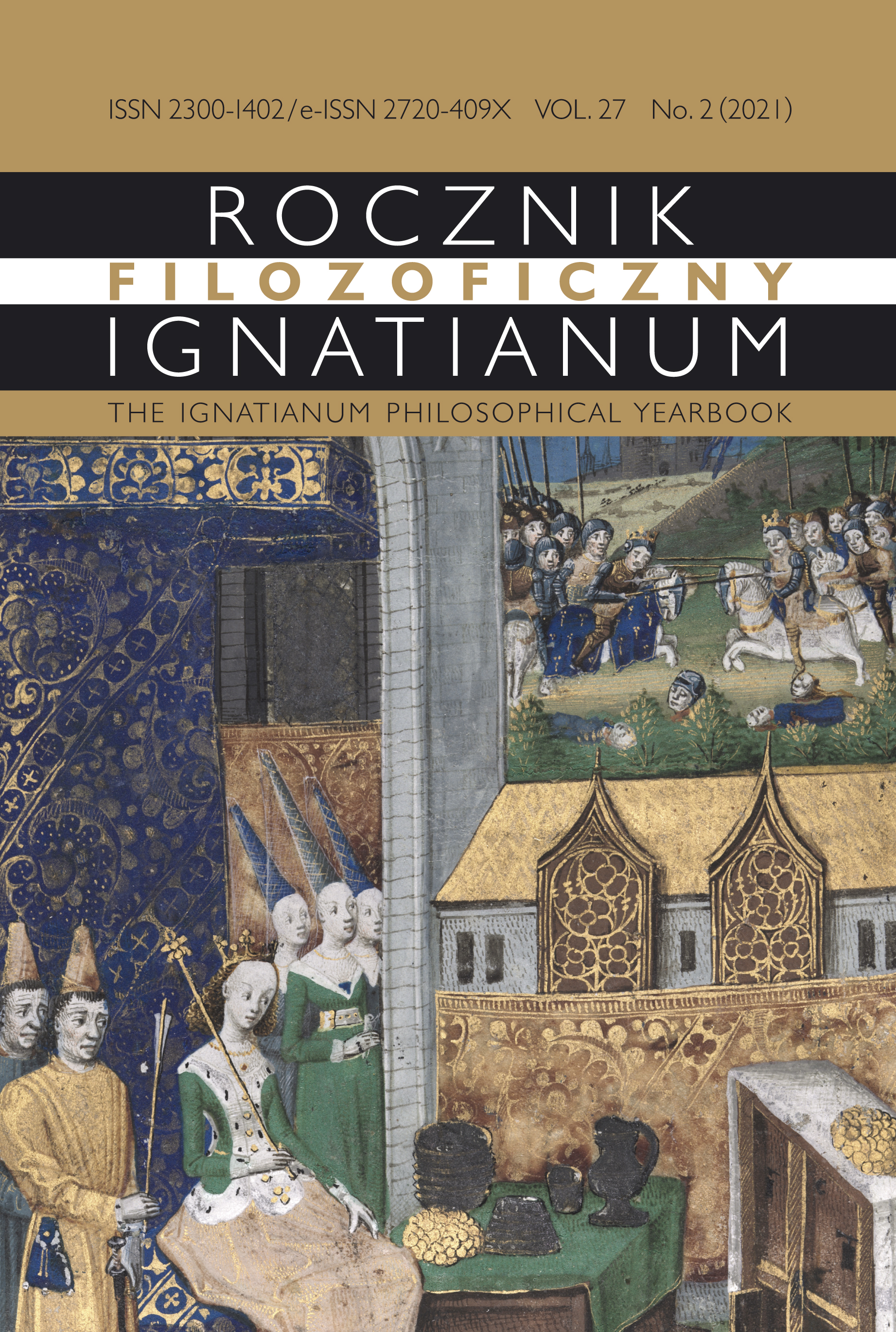Pyotr Verkhovensky by Fyodor Dostoyevsky
Why Does “the Little Devil” not Convert?
Abstract
The article is about the problem of evil in the work of Fyodor Dostoyevsky on the basis of an analysis of the behavior of Pyotr Verkhovensky, the hero of the Demons. The aim of the analysis will be to show that Pyotr Verkhovensky, as a human, broke and trampled all the ideals and laws that people should follow. He turned the concept of good and bad around to use them for his own evil purposes. The author will show that the hero of Fyodor Dostoyevsky’s novel consciously turned away from the Christian values of goodness, love and truth in order to devote himself to evil and introduce a new moral order in Russia in the name of socialism. Fyodor Dostoyevsky’s novel, Demons, was used as the source material. The analysis used the statements of researchers dealing with the work of Dostoyevsky, both Russian (Vyacheslav Ivanov, Paul Evdokimov, Michael Bakhtin, Leo Zander, Fyodor Stiepun, Nicholas Berdyaev) and Polish (e.g. Stanislaw Cat-Mackiewicz, Cezary Wodziński, Anna Raźny, Jan Krasicki, Grzegorz Przebinda). The collected research material allowed for an in-depth analysis that confirmed the thesis that Pyotr Verkhovensky is not to be forgiven because he is unrepentant about the wrongs he has committed, and he does not want to correct himself. Using the hermeneutic method, the author showed that Pyotr Verkhovensky does not deserve forgiveness, because he does not feel responsible for the crimes committed and does not show any remorse. He does not realize his guilt and the necessity of punishment. It is this state of consciousness, and not only his criminal deeds, that distinguishes him from other heroes. The conducted analysis and the collected material proves that all his ideas and actions are illusions, as they are not rooted in ontological or axiological truth. His mind and soul are plunged into a falsehood that creates chaos, and all his actions resulted from the evil within him of a demonic nature. However, there is hope for salvation for Pyotr Verkhovensky, but first he must confess his guilt and accept the punishment.
Copyright (c) 2021 Jesuit University Ignatianum in Krakow

This work is licensed under a Creative Commons Attribution-NoDerivatives 4.0 International License.
The Yearbook only accepts materials for publication that are free of all conflicts of interest, and that in no way involve conflicts over authorship, copyright, etc. The Editors will take action against any cases of plagiarizing, ghostwriting1, guest/honorary authorship2, etc. Where co-authored work is concerned, the Author listed first is expected to take responsibility for the submission, and is required to make clear the contributions of all of the Co-Authors involved. In the event of the publication owing its existence to funding dedicated to this purpose, this fact should be made clear: e.g. in any note of thanks/acknowledgement, or in a footnote, etc. Explicit notification should be given of any form of reprinting, with the appropriate evidence of permission to publish being furnished as required. Any impropriety on the part of Authors/Reviewers risks exposing them to appropriate responses from the relevant institutions.
______
1 This term refers to instances of a person who has made an essential contribution being omitted from the list of authors, or from notes conveying gratitude and/or acknowledgement.
2 This occurs when a person who has made either an insignificant contribution or no contribution at all nevertheless appears on the list of authors.





